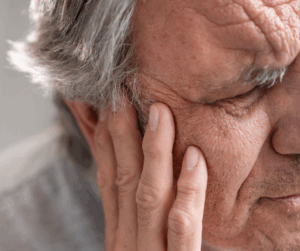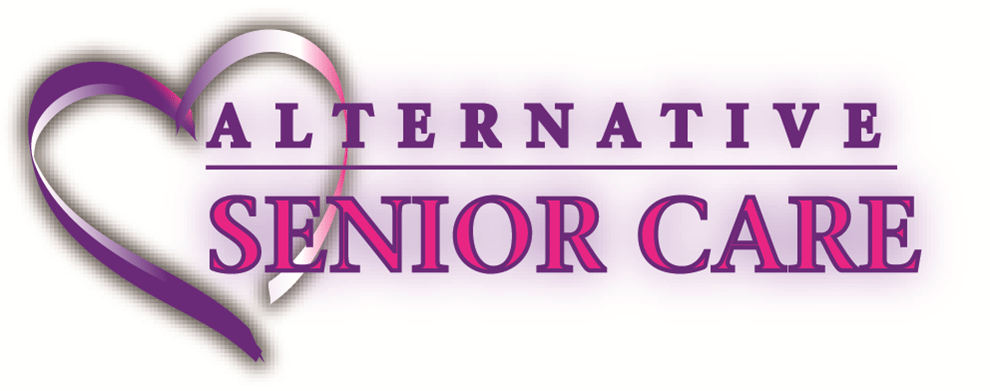Helping Seniors Manage Tinnitus
 Tinnitus—the perception of noise or ringing in the ears when no external sound is present—affects millions of people worldwide, with seniors being particularly vulnerable. The persistent sounds of buzzing, hissing, or ringing can significantly impact quality of life, leading to frustration, sleep disturbances, and even depression. For seniors, tinnitus often compounds existing hearing challenges, making effective management essential. Thankfully, with the help of elder care, seniors can gain an understanding of how the condition impacts their day-to-day lives and learn effective management techniques.
Tinnitus—the perception of noise or ringing in the ears when no external sound is present—affects millions of people worldwide, with seniors being particularly vulnerable. The persistent sounds of buzzing, hissing, or ringing can significantly impact quality of life, leading to frustration, sleep disturbances, and even depression. For seniors, tinnitus often compounds existing hearing challenges, making effective management essential. Thankfully, with the help of elder care, seniors can gain an understanding of how the condition impacts their day-to-day lives and learn effective management techniques.
Understanding Tinnitus in Seniors
The auditory system naturally deteriorates with age, which may lead to age-related hearing loss, known as presbycusis. Presbycusis often coincides with tinnitus. Additionally, seniors may experience tinnitus due to medication side effects, cardiovascular issues, or as a result of long-term noise exposure from earlier in life. Understanding these potential causes is the first step toward effective management.
Medical Options Regarding Tinnitus
Before exploring management strategies that seniors might try on their own, seniors should consult their healthcare team about questions and concerns they have regarding tinnitus. An audiologist can conduct comprehensive hearing tests to identify any underlying hearing loss, while ENT specialists can rule out medical conditions that might be causing or worsening tinnitus. Sometimes, simple interventions like removing earwax or adjusting medications can provide relief. Elder care can encourage seniors to reach out to the medical team, as well as transport them to and from appointments.
Hearing Aids and Sound Therapy
For seniors with hearing loss alongside tinnitus, hearing aids often provide dual benefits. Modern hearing aids not only amplify external sounds but many also offer built-in tinnitus masking features. These devices can be programmed to generate white noise or customized sounds that help divert attention away from tinnitus.
Additionally, sound therapy utilizing tabletop sound machines, smartphone apps, or bedside noise generators can be particularly helpful during quiet moments or at night when tinnitus often seems louder. Nature sounds, white noise, or soft music can mask the perception of tinnitus and promote relaxation.
Lifestyle Modifications
Beyond medical interventions, hearing aids, and sound therapy, elder care can provide seniors with information and encouragement regarding lifestyle adjustments they can make to help manage the condition, which include the following:
- Limiting consumption of caffeine, alcohol, and salt, which can exacerbate symptoms in some seniors
- Managing stress through relaxation techniques like deep breathing, meditation, or gentle yoga adapted for seniors
- Maintaining regular physical activity appropriate for their fitness level
- Establishing consistent sleep routines to counter tinnitus-related insomnia
- Avoiding prolonged exposure to loud environments and using hearing protection when necessary
Cognitive Behavioral Therapy (CBT)
Cognitive behavioral therapy has shown promising results for tinnitus management in seniors. This approach doesn’t eliminate the sounds but changes how the brain responds to them. CBT helps seniors develop coping strategies, reduce tinnitus-related distress, and address negative thought patterns that can amplify perceived symptoms.
Support Networks
Connecting with others who understand the challenges of tinnitus can be invaluable. Local support groups, online forums, or tinnitus associations provide opportunities for seniors to share experiences and strategies. Family members can also play a crucial role by learning about tinnitus and offering patience and support.
While tinnitus cannot always be cured, especially in seniors, where it may be linked to age-related hearing changes, it is possible for it to be effectively managed. Elder care can help seniors understand what lifestyle modifications may help them manage the condition, as well as encourage them to talk with their medical team and utilize helpful devices such as hearing aids.
If you or an aging loved one are considering Elder Care in Alexandria, MN, please contact the caring staff at Alternative Senior Care today.
Providing Home Care in Central Minnesota and Surrounding Communities. Call us today at (320) 352-3350
- Helping Seniors Manage Tinnitus - May 21, 2025
- Why Are ADLs and IADLs Significant for Seniors? - May 8, 2025
- How Senior Home Care Helps Seniors Live a Fuller Life - April 18, 2025

